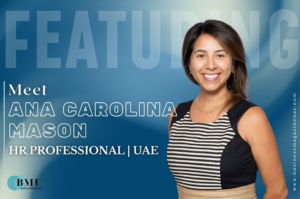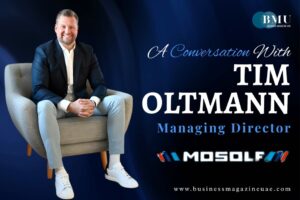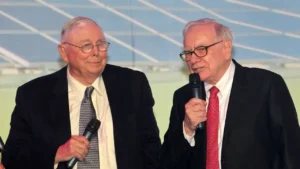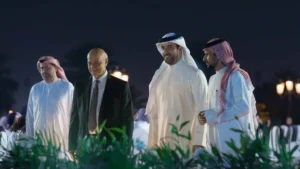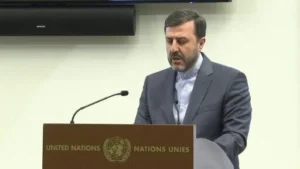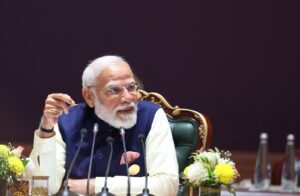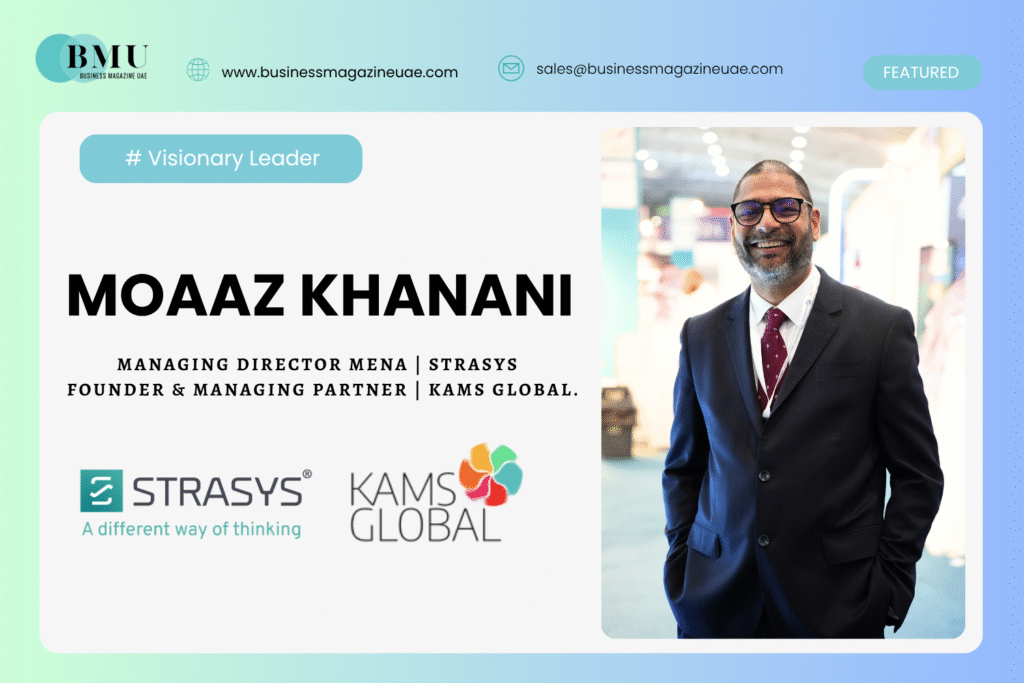
Saudi Arabia’s aviation sector is experiencing unprecedented growth, driven by the ambitious goals of Vision 2030. As the Kingdom positions itself as a global aviation hub, local expertise has become essential in navigating the complex regulatory and operational landscape.
We recently spoke with Moaaz Khanani, a Senior Management Executive with extensive legal, financial, and commercial expertise across multiple industries. He serves as Managing Director MENA of STRASYS, a multi-award-winning strategic innovation boutique, and is founder and Managing Partner at KAMS Global, a consultancy specializing in aviation recently recognized in Aviation Business Middle East’s list of top aviation companies in the region.
With years of senior management experience in leadership roles and stakeholder management, Moaaz has built a reputation for driving business transformation, particularly in the aviation sector.
The Spark Behind the Journey
What inspired you to start this business?
The opportunity became apparent through careful observation of Saudi Arabia’s aviation sector during my time as CFO with a private aviation company. I watched talented entrepreneurs with vision and capital facing major regulatory challenges simply because they lacked access to specialist advisory services that could bridge the gap between regulators and operators.
Take starting an airline, for example. This is an extremely complex, highly regulated certification and licensing process that startup operators were trying to navigate on their own. I’ve been in Saudi Arabia since 2010. The pace of change since 2020 has been phenomenal. There is genuine structural change in the Kingdom’s business environment.
What I’ve realized is that breakthrough business opportunities rarely emerge from dismantling entire industries. Instead, they arise from strategically linking established business capabilities operating in isolation. So our value proposition became building these critical bridges between existing strengths while delivering the specialized expertise that regional markets demand. When the exceptional opportunities associated with Vision 2030 began to emerge, our strategic position as established market players with local expertise proved beneficial.
Learning Through Leadership
Looking back at your first year in this role, what would you do differently?
In retrospect, we should have anticipated even greater transformation. When I founded this company in 2013, our market research showed strong potential, but the actual speed of development exceeded our most optimistic predictions. The rapid expansion in aviation activity has created a severe shortage of qualified professionals – this is now one of the industry’s biggest challenges. We should have focused more of our investments in developing local talent and building strategic partnerships to help us do so.
Solving Complex Problems
How do you approach problems that don’t have clear solutions?
Our approach emphasizes thorough understanding before taking action. Instead of using standard solutions for every situation, we first study the specific circumstances – whether they involve regulations, operations, or strategy – then utilize our network to find the most relevant expertise.
Our response to an aircraft repossession request during the pandemic demonstrates this. With travel bans and market instability, we couldn’t implement standard procedures. Instead, we had to combine our technical aviation knowledge with skilled management of relationships under extraordinary conditions. This experience confirmed our belief that complex problems require tailored solutions. Our best results have come from understanding each situation’s particular characteristics rather than depending entirely on pre-established methods.
A Defining Moment
Can you share an experience that shaped how you run your business?
The successful recovery of three Airbus aircraft during the pandemic marked a turning point for our business strategy. This complex operation, completed despite global travel restrictions and market disruption, proved that we could deliver concrete results under the most challenging conditions.
This experience changed the way we position ourselves in the market. We moved beyond traditional consulting – providing analysis and recommendations – to becoming implementation specialists who ensure difficult objectives are accomplished despite external obstacles. We understood that our core value lies not simply in providing advice, but in acting as the operational connection between what clients need and what can actually be achieved in the market. When standard methods of operations fall short, we innovate to ensure projects are successfully executed.
Leadership Philosophy
How would you describe your leadership style?
Collaborative. Our business works by connecting international standards with local needs and helping regulators and operators understand each other. Most conflicts happen because people don’t have the full picture, not because their goals are incompatible. We bring together people with different but valid concerns and succeed by helping everyone get aligned rather than imposing solutions.
Finding the Competitive Edge
What challenge led to an unexpected breakthrough?
When we first started bidding for projects, people doubted whether a small local company like ours could match international aviation standards. However, while the major global firms had strong technical expertise, they struggled to understand our local market dynamics.
We discovered our competitive advantage was not competing directly with these giants but serving as the connection between their expertise and our market knowledge. Rather than attempting to develop all capabilities internally, we collaborate with leading international aviation and technology companies. We ensure these solutions work effectively within our regional context. This approach allows us to deliver world-class services while building local expertise and capabilities.
Vision for the Future
If you could change one thing about the aviation industry, what would it be?
Reflecting on the progress in Saudi aviation, I see a story of remarkable achievement. We’ve built a world-class industry on a foundation of safety and operational excellence. This is an incredible legacy. But now we’re standing on the brink of a new era defined by the ambitions of Vision 2030, and that vision demands innovative leadership.
I think it’s time to move to a mindset that combines the unparalleled experience of our industry veterans with a courageous appetite for pioneering ideas and technology – that moves us from how we do things today to discovering how we will do things tomorrow.
Connect with Moaaz Khanani on LinkedIn. Visit STRASYS and KAMS Global to learn more.
Also Read :-
Michael Nielsen: Shaping Tomorrow Through Vision, Action, and People
Dietmar Kautschitz: Bringing Exceptional Design Visions to Life

